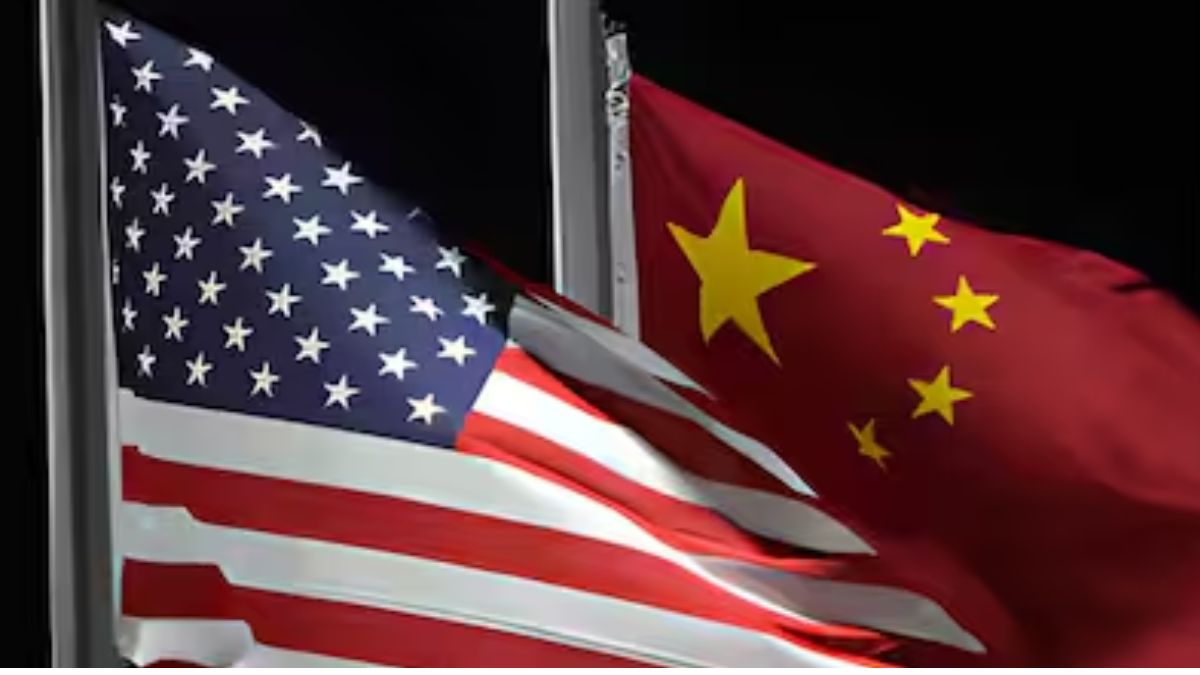)
Russia now sees Britain and not the United States as its main Western rival, accusing Britain of espionage and subversion amid rising tensions over Ukraine and changing global equations.
In a surprising shift that reflects a reassessment of Moscow’s threat perceptions, Inspired by the unpredictability of America under Donald Trump and of britain Strong support for Ukraine, Britain has now replaced Washington as the Kremlin’s primary Western foe. Once focused solely on the United States, Russian rhetoric and actions increasingly accused Britain of espionage, sabotage, and direct interference in regional conflicts.
From America to Britain: A deliberate shift in Russia’s rhetoric
Long the focus of Russian anger, the United States is increasingly retreating into the Kremlin’s villainous narrative. As Russian officials look for a more hostile “Western” enemy, Britain has stepped into that role. Russia has accused Britain of everything from drone strikes and intelligence operations to infrastructure sabotage, allegations the British government strongly denies.
This change is partly strategic. With signs of a thaw in US-Russia relations under Donald Trump, who has pushed for rapprochement, Moscow is redirecting its hostility towards a traditional rival that is more willing to confront it militarily: Britain.
In addition to the recalibration, there is also a growing belief in Moscow that the United States is no longer a reliable ally. Fiona Hill, a senior figure in Britain’s 2025 strategic defense review and former US National Security Council Russia adviser, warned that Russia is increasingly treating Britain as its primary rival.
Hill argued that under Trump, the US has become “unpredictable”, reducing its credibility to European allies. According to his analysis, this has left Britain caught between an increasingly aggressive Russia and a transactional, unpredictable US.
Frozen Russian assets and espionage claims
The United Kingdom, along with European allies, has been very active in using frozen Russian assets to quickly support Kiev in order to increase pressure on Vladimir Putin. British Prime Minister Keir starmer Last month London hosted “Coalition of the Willing” talks with President Volodymyr Zelensky and other leaders to discuss a range of efforts, including removing Russian oil and gas from the global market and giving Kiev more long-range missiles.
The deterioration in UK-Russia relations reached a new low in March 2025, when Moscow expelled two British diplomats, accusing them of espionage. The Kremlin claimed he provided false information to enter Russia and carried out intelligence gathering, undermining national security. London immediately dismissed the allegations as “malicious and baseless”.
The expulsion came at a time when Russia was negotiating to restore diplomatic relations with the United States, a clear sign that Moscow’s focus had shifted decisively to Britain.
Historic rivalries rekindled in modern geopolitics
Analysts say that Britain-Russia enmity is based on deep historical currents. From the era of the “Great Game” to Cold War posturing, Moscow has long viewed Britain as a resilient and strategically important foe.
London is now providing strong military and diplomatic support to Ukraine, with Putin’s government intensifying its anti-British rhetoric. Britain has been portrayed in the Russian media not just as an interventionist, but as a formidable geopolitical power, inspiring opposition to the West in Moscow.
recently, Russia has issued a stern rebuke to the United Kingdom, warning it against interfering in ongoing efforts for a ceasefire in Ukraine. Moscow directly accused London of disrupting peace efforts being jointly conducted by Russia and the United States.
Kremlin condemned Britain’s recent suggestions Including the idea of sending Western troops after the ceasefire, they have been described as irresponsible and dangerous. Russian officials described the proposals as a dangerous geopolitical stance, warning that such actions risked escalating tensions rather than helping efforts to restore peace and create lasting peace.
Implications for future conflict and global alliances
Britain’s emergence as Russia’s villain of choice represents more than propaganda, it could reshape geopolitical competition. As Moscow refocuses its hostilities on Britain, it may seek to break up unity within NATO and drive a wedge between its adversaries.
Meanwhile, Britain is being pressured to redefine its security posture. Hill and other defense experts argue that this new geopolitical reality demands greater national cohesion, flexibility, and less reliance on US military guarantees.
This change in Russian threat perceptions may also have implications for broader global alliances. If Moscow increasingly views the UK as its primary Western rival, it could have consequences for how NATO, Europe and other partners align their defense and diplomatic strategies in response.
with inputs from agencies
end of article

)
)
)
)